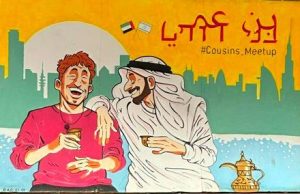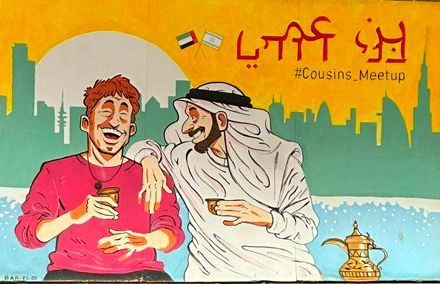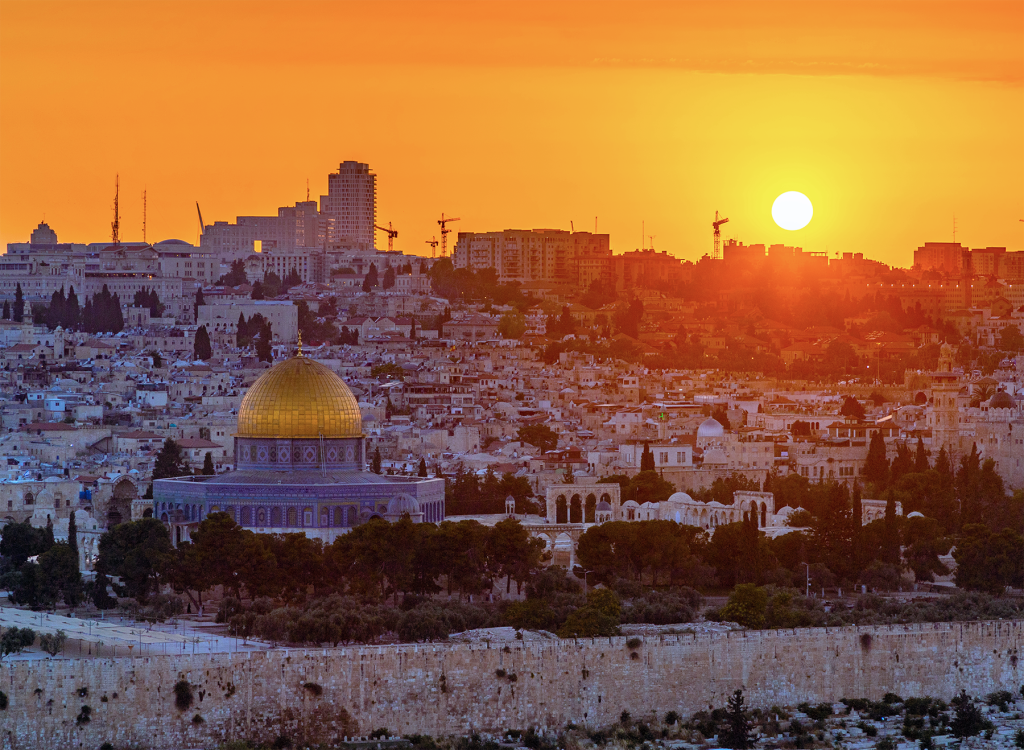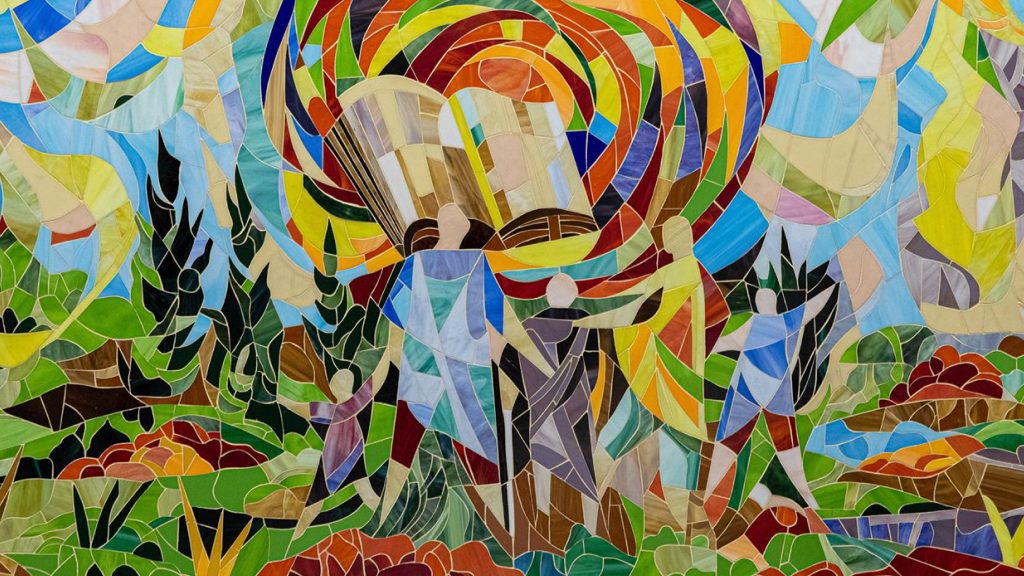In the book of Genesis, God calls to Abraham, and says to Abraham to take your son, your favorite son, who you love, to the land of Moriah. There is a midrash, or a rabbinic story, that imagines Abraham’s home immediately after this commandment. Isaac and Ishmael argued with each other, both wanting to be the one chosen to go with their father. The most amazing part is, that depending on the book you read, both brothers were correct and chosen. The story of Abraham nearly sacrificing his son as a test of faith is a cornerstone of both Judaism and Islam.
While we read this story each year on Rosh HaShanah, Muslims celebrate this test of faith during Eid Al Adha, the Feast of the Sacrifice. This holiday is considered the second holiest on the Muslim calendar, and concluded last week.
In many ways, this shared story is at the foundation of the Abraham Accords. In 2020, the Abraham Accords established warm diplomatic relations between Israel and the United Arab Emirates, Bahrain, and Morocco.
Earlier this week, I returned from a rabbinic mission to the United Arab Emirates, Bahrain, and finally to Israel. Two of the goals of the mission were to celebrate the Abraham Accords, and to begin building relationships on the people to people level. Through these travels, we met a number of people from all walks of life, and yet the message was always the same. The Emirati, Bahraini, and Israeli people we spoke with all want the agreement between countries to be a warm one, where the relationship goes deeper than the government and into the private sector.
In many ways, beginning with the name, the agreements speak to the innate connection between Israel and her neighboring countries. Leaning into the parts of our faiths that we share can build bridges between countries, faiths, and people in a deeply profound way. But, civilian buy-in to realize this goal requires leaders who can facilitate this process.
In this week’s Torah portion, Joshua is chosen to succeed Moses as the leader of the People of Israel. Joshua stands out to God as an, אִישׁ אֲשֶׁר־רוּחַ , an inspired man. Moses is then tasked with bringing Joshua in front of the Jewish community, and investing in him, almost giving the People of Israel permission to follow a new leader after all these years. With the buy-in from Moses as the current leader, the People of Israel and Joshua are the set up to succeed as sheep and shepherd into the next generation.
Just as Jewish tradition imagines the power of the next generation, as with Abraham, and then with Moses and Joshua, as one part of the next generation, I traveled with a delegation from the Zionist Rabbinic Coalition, a group of rabbis across denominations committed to promoting unity, understanding, and cooperation among the Jewish communities of Israel and the Diaspora. While we were together, we began having conversations about how to bring what we saw, heard, felt, and tasted back to our communities.
There are countless stories and pictures to share, and over time I’m sure I will. Overall, I return believing even more that the Jewish people have an incredible opportunity to help strengthen the relationships formed through the Abraham Accords. But the story I want to share this Shabbat comes from the work that one of our Emirati brothers is already doing.
In Dubai, we met with Ahmed Obeid Al Mansoori, founder of the Strategists Center, a think tank focused on the Middle East Geo-political affairs, and a former member of the Emirati government. In addition to all of this, he founded three museums, including the Crossroads of Civilization Museum. What makes this museum particularly unique is that it is home to the first Holocaust exhibit in the Arab world. He is devoted to educating Emiratis and all who come through his museum about what he calls, “the biggest crime against humanity”. Just outside this exhibit is a mural of two people smiling and laughing, the Emirati and Israeli flag together, and the hashtag #cousins_meetup.

*Photo Credit Rabbi Elana Rabishaw
Al Mansoori reminds us that our stories are shared, and he teaches this message to everyone, even the ones who question if the Holocaust actually happened. Al Mansoori recalled that most put their politics aside once they see it. The exhibit then becomes an opportunity for dialogue because it shows that both cultures were brothers before they were cousins.
Since Isaac and Ishmael, our stories have always been told parallel to one another. This Shabbat, may we all be inspired like Joshua and Ahmed Obeid Al Mansoori to lead the way toward warm relationships with everyone, siblings, cousins, neighbors, or strangers. אמן
Shabbat Shalom,










